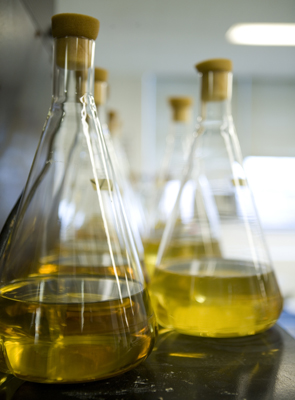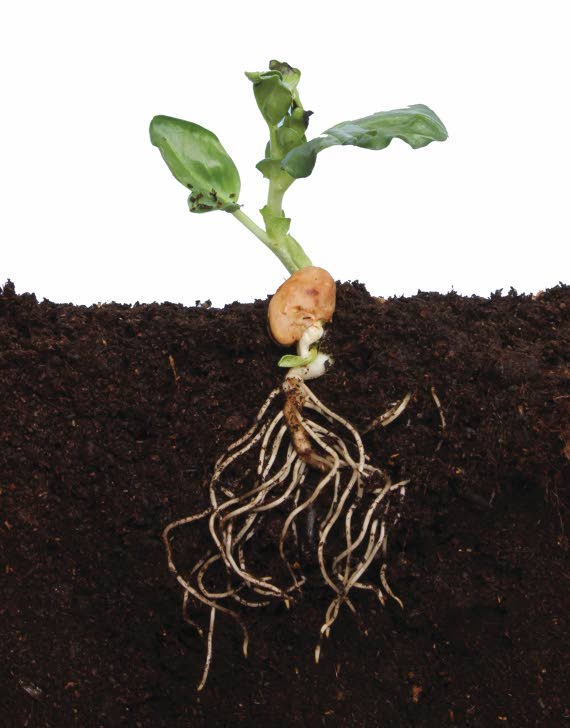
How does BioGrow 365 work?
In Science one gene carries the direction for making one protein and it is these proteins that control the movement of energy and materials throughout the plant during its growth. Proteins such as Chlorophyll, enzymes and hormones are made up of amino acid chains. Among its other duties, the gene carries the list of amino acids that are bonded together to make the protein that it (the gene) represents. There are only about twenty amino acids that are widely recognised, and the gene is very specific in the order and the inclusion of the various elements. To leave any out would result in a dysfunctional protein.
Optimum plant growth is possible only when all the essential elements are adequately supplied and in balance with each other.’ Vigorous plant growth, supported only by an excessive supply of N.P.K (Particularly nitrogen) without the support of other minerals can lead to a depletion of minerals in the soil. If the depleted mineral is needed for the production of a required amino acid, it follows that the protein will not be properly formed. Loosely speaking, this is where a number of the issues, such as shelf life, taste and plant health come from. BioGrow 365 addresses all these issues by unlocking and making available a wide range of elements during application. Worth noting perhaps is that while plants are not directly sensitive the pH of the soil, they are in fact sensitive to the effect of acidity on the availability and form of plant nutrients. In passing, pH is also a significant factor in determining the quantity and diversity of soil organisms. A neutral pH allowing greater diversity in this instance than say a pH of below 6(Acid) Since the biota in BioGrow 365 is one of these soil organisms, a significantly acid soil may inhibit the soil conditioning benefit of the product. In English, underlying issues such as soil pH can greatly affect the performance of any fertiliser. Simple soil testing kits are available at most major hardware’s and are easy to use and inexpensive.







